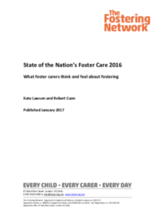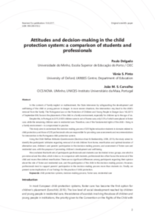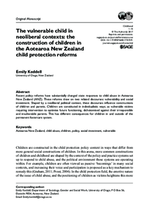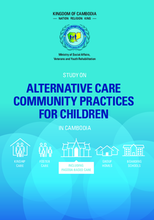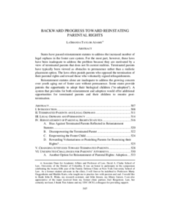Displaying 1611 - 1620 of 2223
This paper examines permanence and long-term foster care in England.
Key findings on the state of the United Kingdom’s foster care system by The Fostering Network note that although most foster carers say they want to continue caring for children, only 55% say that they would recommend it to others.
This study aims to understand the decision-making process of 200 higher education students in domains related to child protection, and those of 200 professionals who are responsible for providing case assessments and recommendations for intervention in the Portuguese child protection system.
The paper presents a detailed analysis of the Russian official statistics for orphans and children placed out of parental care.
This paper discusses recent policy reforms have substantially changed state responses to child abuse in Aotearoa New Zealand (ANZ).
This study commissioned by the Ministry of Social Affairs, Veterans and Youth Rehabilitation of the Kingdom of Cambodia and UNICEF Cambodia sheds light on how different forms of alternative care are being used in the community.
The objective of this study was to undertake the first systematic census of background, care type and placement stability characteristics of young people living in the out-of-home care sector in Australia.
This article examines the legal inadequacies of reinstatement statutes in the US which "often punish parents who opposed the termination of their parental rights and reward those who voluntarily signed relinquishments."
This book presents the results of this research on more than 52,000 children placed in public care in Romania (in special protection) who receive family or residential-type protection services as well as on the children at risk of separation from their families from the source communities.
Analyzing the ideas, debates, and policies surrounding foster care and foster parents’ relationship to public welfare, this book reveals the framework for the building of the US foster care system and draws out its implications for today’s child support networks.

